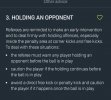Assuming that your competition does not make use of VAR, then why not just take the easy decision of retaking the DFK and saying you stopped it before the ball was in play? Or saying the incident began before the ball was in play? Or just not say anything?
In regards to your analysis, I think you've had a good reflection. Being lenient, leaving your cards in your pocket, and not calling the small fouls which you don't need to call but definitely could call is not my advised approach. I like the warning in the first instance of dissent, but then you've had a whole lot more dissent, from the coach and the players, which you didn't deal with. Once you've publicly warned someone for dissent, deal with the dissent appropriately the next time, with a caution.
Furthermore, when the game is chippy or when the temperature is getting hot, call the small "maybe" fouls. Hands on the back? Give the foul. A player goes shoulder to shoulder just a little bit harder than necessary? Foul. A player gets his arms slightly around his opponent on a corner kick? Stop the restart, address it, and give the foul right away when the ball goes back into play. When you feel a game getting out of hand, smother it.
In hindsight and with the correct information I think taking no action was the right thing to do in law, but I should have spoken to the player.
Thanks for the other advice.



